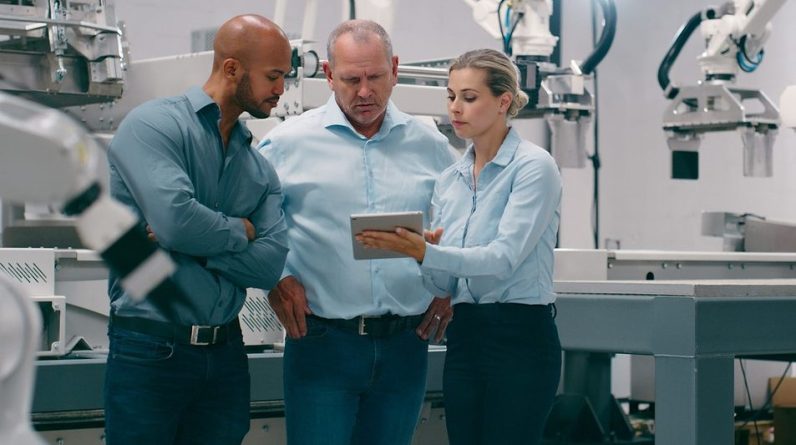
The release of ChatGPT and subsequent conversational artificial intelligence models have given rise to varying opinions about the role of AI in human-centric industries such as asset-intensive manufacturing.
While most critical operations across production, manufacturing and supply chain maintenance remain largely manual, a quiet change driven by AI models is enabling teams to access the right information and drive profitability.
This change isn’t without its challenges. Most asset-intensive companies aren’t ready for automation based on large-scale AI models.
In the 2021 BCG Data Capability Maturity Survey, companies in the energy, automotive and industrial goods sectors scored at the very bottom, whereas those in technology, consumer packaged goods and financial institutions continued to outpace other industries.
According to another recent report by McKinsey, data quality needs to be incorporated as a central component of data infrastructure and governance. While modernizing technology and data infrastructure can be a significant undertaking, data quality can be addressed along the way in targeted and iterative ways that focus on the longest-standing and most important issues for business.
With so many open-source AI and machine learning models ready to be integrated into workflows, what was once a technological barrier is now an opportunity to develop a competitive edge for production-intensive companies.
It’s clear that clean data, synchronized across disparate systems, is a prerequisite for reliable AI models and agents that undertake maintenance and manufacturing tasks autonomously.
Both large and mid-market companies are scrambling to build excellence in data management, by enabling resource-light operational models that are foundational for these AI models and agentic systems.
Almost 55% of AI and ML projects in production and maintenance automation are shelved due to poor-quality upstream data, according to research by Verdantis.
Ironically, industry-specific and purpose-trained AI agents can correct data quality in organizational enterprise resource planning (ERP) systems, anomalous sensor data from maintenance-management software, and transactional and business data from enterprise asset management (EAM) systems.
The detection of anomalous data from sensors to improve automation and predictive maintenance processes, and the flagging of inaccurate data across product and materials master data, are a few instances where AI models can directly boost productivity and indirectly enhance maintenance, repair and operations (MRO) workflows.
Procurement automation, linked directly to ERP inventory systems, work orders and preventive maintenance software, makes sense of siloed data and autonomously creates procurement requests for raw materials, spare parts and consumables.
This opens up an entirely new realm of automation within procurement lifecycle management, wherein AI agents and context-aware AI models can make independent decisions, relegating humans to the role of reviewers and approvers. The possibilities are theoretically limitless — and they’re not a distant prospect.
There’s more evidence from several circles. A 2024 McKinsey-MIT study finds that manufacturing AI leaders deliver 4x results in half the time compared to laggards — producing rapid return on investment when data and master data management (MDM) are well aligned.
Use cases for manufacturing operations driven by a data-first and AI-enabled approach are showing up globally. Priestley’s Gourmet Delights, a producer and supplier of cakes and desserts to hospitality and retail stores in Australia, recently unveiled a $53-million AI-powered food facility. The data-led “smart” factory that can instantly harness real-time data to boost productivity.
In April 2024, Caterpillar, one of the world’s largest manufacturers of mining trucks, announced rapid innovations in its manufacturing and maintenance operations with the help of AI. Jamie Engstrom, chief information officer and senior vice president of IT, is confident that the technology will revolutionize the way in which humans interact with machines and design interfaces between systems.
Productivity aside, these operations are also proving to be safer and less expensive, as the cost of implementing AI reduces across the board.
Most importantly, a well-trained AI agent isn’t prone to human errors, building resilience in supply chains that were otherwise vulnerable to inconsistencies and errors associated with human-centric processes.
Even a surface study of manufacturing statistics reveals the much larger role that AI can play in manufacturing operations, directly and indirectly, by addressing data quality, data availability and fractured operations.”
Rohan Salvi is associate director of Verdantis.
Originally Appeared Here








